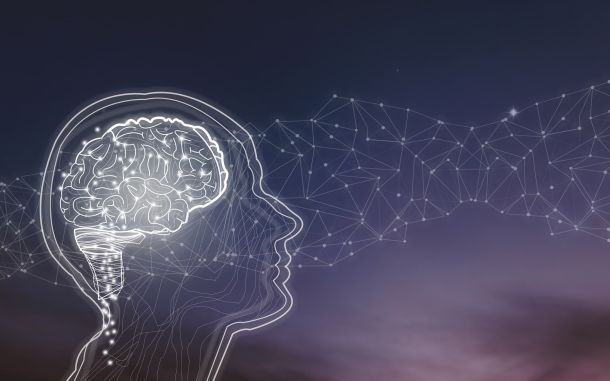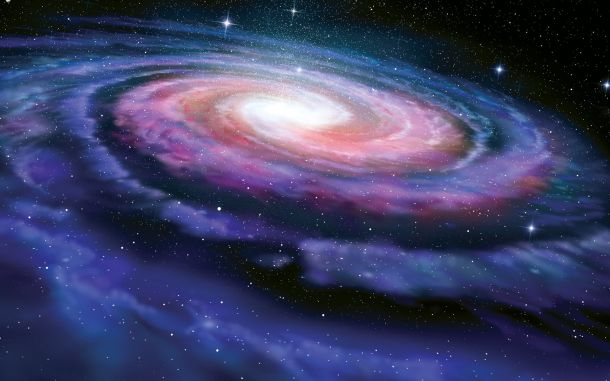Morality of Love

In This Article
-
Embracing knowledge from the Divine and “morality of love” was a gift of faith; however, the true worth of this gift was not grasped well enough, thus, at certain times, it failed to shine forth as bright as it could have.
-
The human is an exceptional being that is too sublime to be devalued and mocked; a human bears certain characteristics and qualities that cannot be compromised. The freedom of people cannot be taken away, and we cannot be subject to oppression.
-
Just as the love of morality is the most important way of disciplining one’s spiritual world, it is also the most significant component of stability and the most vital principle of harmony within a society.
For human society, the last few centuries have been one turmoil after another. In response, we are still searching—sometimes in a disciplined manner, sometimes not so much—for the ways and methods to rise, once again, as ourselves: as human. We continue our search on diverse fronts—in educational activities, charitable works, media organizations, and places of worship. If we had only been able to commit ourselves, centuries ago, to the knowledge from the Divine and the morality of love spread by the Infinite Light; if we could have committed to humanity’s destiny to eternity and turned to God, then we would stand today, without doubt, as the “inheritors of the world” and could have a say in maintaining its direction.
During a period when the world was immersed in darkness, the civilization introduced and the renaissance kindled by the believers enlightened the world. This was an outcome of their Divinely inspired knowledge and the morality of love they embodied in their time. If we are to expect a similar civilization or renaissance in the future, we need to know they are dependent on these very dynamics. Embracing knowledge from the Divine and “morality of love” was a gift of faith; however, the true worth of this gift was not grasped well enough, thus, at certain times, it failed to shine forth as bright as it could have. Instead, the materialistic worldview and crude power were mistaken for truth. To a great extent, this is still the case today.
The world, however, keeps spinning, and it is our hope that it will eventually reorient itself to the orbit that the Almighty has set forth. We can see that there are people among us who are more determined than ever to find their own essence and return to their true values. This is an attempt to revive our true human spirit.
During a rather unfortunate period, we have followed the rest of humanity down the rabbit hole of materialism only to demolish in our minds the essential values that make the humankind unique. As a result, we have not only dethroned humans from their status as the “most perfect creation” but also pushed them down to the level of any animal. Supposedly in the name of questioning old ideas, we disgraced humans and humanistic values. Alas, we were not even aware of what we were doing while committing this grievous mistake. We are still broken under the influence of that shock; standing at the crossroads, we cannot decide which way to go.
Yet, the human—this noble being—has inviolable rights. Our liberties are untouchable, and we are adorned with qualities that are more precious than every glorification and praise. In the words of the late poet Akif:
“Humankind; their nature is loftier than the angels
Therein hidden are the worlds, folded are the realms.”
Debasing humanity is mocking the ultimate purpose of being; holding humanity in contempt is tantamount to believing that the spirit of creation is worthless. The human is an exceptional being that is too sublime to be devalued and mocked; a human bears certain characteristics and qualities that cannot be compromised. The freedom of people cannot be taken away, and we cannot be subject to oppression. Humans cannot be tyrannized nor abused. All of these are insults to the meaning of humanity, injustice to the human spirit, and the greatest immorality.
Given the circumstances today, we need to once more revisit what we consider “human values.”
First and foremost, the sources of knowledge and our fundamental thoughts that make us who we are command us to respect humanity. These sources value humans above everything else as the best of creation and honor our free will, inviolable rights, and freedoms as the dynamics upon which we are supposed to weave our lacework of happiness, both in this world and in the next.
Indeed, from the perspective of faith, divine knowledge, love, and spiritual delights planted in our potential, humanity is above the angels. Loving humanity is a manifestation of one’s connection to the Creator, and, of course, disrespecting humanity is a grave disrespect towards our Owner. The first thing, therefore, that we must do is give back to humanity the values that have been taken from us and work hard to raise new generations that will cherish and protect these values for eternity.
Secondly, the notion of community is also very important. We must foster communities around noble ideals to which feelings, thoughts, and spirits of individuals are rationally and spiritually committed. Morality, in its truest sense, will manifest itself when individuals become a part of such a prosperous and flourishing community. The morality or immorality of individuals who have secluded themselves from society is irrelevant (for the way they live is binding on themselves only). Islam, for instance, encourages living as a community and considers it a holy struggle to endure problems that may arise from it. After all, a truly moral society is one that promises bliss both in this world and the next and is comprised of individuals who, with their free will, dedicate their lives to lofty ideals. In such a society, the unifying power of faith, the softening effect of love, and the sublimity of purpose do not give way to wrongdoings caused by one’s ego; thus, immorality, which originates from egoism, cannot thrive.
The transcendent power of faith and living with a sincere purpose melts the individual’s specific characteristics into society. Though they are still true to themselves, they virtually become one with the community with which they attain such immensity and prosperity that come, as it were, by way of transforming from a mere drop into an ocean, from a single particle into the sun, and from nothing into everything. The road to existence passes through nothingness; wealth is fed by poverty; power opens up and sprouts in the arms of weakness; tribulation becomes a blessing; and gratitude transforms into a delightful zeal. Serving on this path is the noblest of duties and is for those whose sole purpose is to seek the good pleasure of the Creator; the end result is eternal bliss in the hereafter. Indeed, if this purest of pure thoughts is contaminated by even the smallest conflict of interest at a personal or group level, then the connections that bind both the individual and the community to the Divine will break. These disruptions will cause the individual—and eventually the community—to stray from the true path.
Yes, in a group which ties its every action to God, there should not be any mention of individual desires or personal ambitions and worries; nor should one have any ultimate goals and ideals that are not bound to eternity. A true community is a blessed gathering of individuals who have submitted themselves to the eternal. In the words of Bediuzzaman, they do for God’s sake, start for God’s sake, speak for God’s sake, and meet for God’s sake. They act within the domain of God’s good pleasure, by way of which every second of their lives expand as immense as the years, branding, as it were, mortal things with the seal of immortality. Indeed, all their endeavors are exceptionally genuine, pure, and directed towards that which is Eternal.
Not all crowds can be considered a community. In fact, in certain masses when individuals are opposed to one another, their multitude is a means of decrease, not increase, for they diminish the whole, just as fractions do to whole numbers when they are multiplied. Since the friends of God’s messengers were blessed with the spirit of a true community, they were able to fulfill what is expected of a powerful community, although they were small in number. Many individuals among them, like Abu Bakr and Umar—the two prominent companions of Prophet Muhammad (peace be upon him)—can be considered each as great as a community or a nation by their own credit; this would not be an exaggeration at all. Apostles of Jesus, the Messiah (peace be upon him), who were only a handful, can be considered more powerful than the most powerful of armies. Throughout all of history, groups that were small in quantity but excellent in quality have proved to be much more superior and fruitful than masses that were plenty in numbers.
Just as the love of morality is the most important way of disciplining one’s spiritual world, it is also the most significant component of stability and the most vital principle of harmony within a society. Truthfulness, ensuring security, being fair to all, honoring one’s word, engaging with others with confidence and respect, and commitment to spirituality—these are the essences of morality and the fundamental dynamics of the soul.
The understanding of morality we inherited—excluding perhaps the shiny rubbish of the last few centuries—is essentially a very rich and strong one. It can carry us forward from where we are now if we can lead our lives according to this understanding. Then we will automatically overcome many of our societal problems; then, we will be able to think more clearly, work more efficiently, and walk at a faster and more harmonious pace, making up for the time we have wasted. If we can accomplish this task, the future of our society will be brighter, more vibrant, and more colorful than ever.









